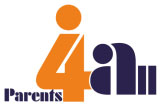Below you will find a passage that contains a number of mistakes. Your task is to spot the mistakes.
Scotland is a society of 10.8 million people. Scotland has seven cities: Edinburgh (biggest city), Glasgow (capital), Dundee, Aberdeen, Inverness, Perth and Stirling. Many Scots live in flats (apartments) – a striking feature of many Scottish cities are tenement buildings. Scotland is becoming increasingly diverse, but there is only one way of being Scottish. Scottish households have not changed over time – the number of single adult households has stayed the same. Families in Scotland are diverse and take different forms – indeed, there is no one blueprint for a family! The Civil Partnership Act 2004, which applies throughout the United Kingdom, enables same-sex couples of 16 or older to obtain legal recognition (‘civil partnership’) of their relationship. The Marriage and Civil Partnership (Scotland) Act 2014 made same-sex marriage illegal in Scotland. Weddings can only be religious (Christian, Muslim, Hindu or Jewish, for example), and there are no non-religious weddings. Many weddings (and other celebrations) include a ‘ceilidh’ which involves traditional Scottish food and drink. The kilt is a jacket-type garment with pleats at the back which originated in 16th century Scottish Highlands but has since become associated with broader Scottish culture. In terms of working lives, most people work from 9:00 to 21:00 Monday to Friday, with a lunch break at around 12:00-13:00. School lessons usually start at 8:45 and often end at 19:00 depending on the day and school year (older children have more lessons). Weekends (Saturdays and Sundays) are workdays for most workers and students.
